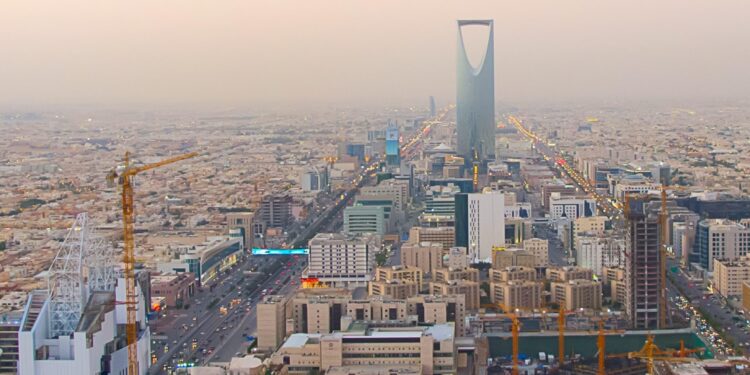Saudi Arabia to Host Pivotal Gulf-US Summit Strengthening Regional Alliances
In a notable diplomatic development, Saudi Arabia has formally invited the heads of the Gulf Cooperation Council (GCC) to convene in Riyadh for a high-level summit alongside U.S. officials. This invitation, confirmed by an advisor to Bahrain’s monarch, highlights Riyadh’s proactive approach toward deepening regional solidarity and reinforcing its strategic partnership with Washington. Against the backdrop of shifting geopolitical landscapes in the Middle East, this summit is designed to facilitate comprehensive discussions on security cooperation, economic collaboration, and shared regional challenges.
Unifying Gulf States: Saudi Arabia’s Vision for Enhanced US-GCC Relations
The upcoming gathering in Riyadh represents a concerted effort by Saudi Arabia to consolidate GCC unity while advancing ties with the United States. According to Bahraini royal counsel sources, this forum will serve as a platform for leaders from member states—including Kuwait, Oman, Qatar, Bahrain, and the UAE—to engage directly with American counterparts on pressing issues that impact both sides.
Key agenda items anticipated at the summit include:
- Security Partnerships: Developing robust defense collaborations aimed at countering emerging threats such as cyberattacks and regional instability.
- Economic Diversification: Identifying new avenues for trade expansion and investment flows beyond traditional oil markets.
- Sustainability Initiatives: Joint efforts targeting climate resilience tailored specifically for arid environments vulnerable to climate change effects.
- Energy Transition Strategies: Exploring renewable energy projects and reducing reliance on fossil fuels through innovative technologies.
This initiative not only reaffirms GCC countries’ alignment with U.S. foreign policy objectives but also signals their intent to present a cohesive front amid evolving global power dynamics. The outcomes of this dialogue could significantly influence future cooperative frameworks between these key players in international affairs.
The Broader Impact: Regional Diplomacy and Security Implications
The Riyadh summit arrives at a critical juncture when Middle Eastern geopolitics are marked by fluid alliances and ongoing conflicts. Saudi Arabia’s leadership role is underscored through its facilitation of this meeting which aims at fostering collective responses among GCC members regarding shared security concerns—particularly Iran’s expanding influence—and protracted conflicts such as those in Yemen and Syria.
Main discussion points expected during deliberations include:
- Enhancing Regional Stability: Coordinated strategies addressing terrorism threats and political unrest across neighboring states.
- Evolving Economic Ties: Strengthening bilateral trade agreements that could unlock billions in investments; recent data shows Gulf-US trade exceeding $200 billion annually (U.S. Census Bureau).
- Tactical Military Cooperation: Reviewing joint defense exercises aimed at improving interoperability among armed forces amid rising tensions from external actors like Russia’s involvement in Syria or China’s growing presence via Belt & Road initiatives.
| Diplomatic Aspect | Larger Consequence |
|---|---|
| Bilateral Relations Enhancement | A more unified alliance structure potentially reshaping Middle Eastern power balances favorably towards Western partnerships. |
| Cohesive Security Frameworks | An increase in intelligence sharing protocols coupled with expanded military drills bolstering deterrence capabilities against destabilizing forces. |
| Sustainable Economic Growth Policies | Diversification efforts leading toward resilient economies less dependent on hydrocarbon revenues amidst global energy transitions underway post-2023 COP28 commitments. |
Tactical Recommendations: Fortifying GCC Solidarity & US Collaboration Post-Summit
The forthcoming summit offers an opportune moment not only for dialogue but also for implementing actionable strategies that enhance cohesion within the GCC while deepening engagement with American partners. To maximize impact moving forward, several approaches merit consideration including fostering joint ventures across sectors pivotal both regionally and globally—such as clean energy innovation driven by solar technology advancements already prominent within UAE initiatives—and cybersecurity measures protecting critical infrastructure from increasingly sophisticated cyber threats documented worldwide (Cybersecurity Ventures reports predict global cybercrime costs reaching $10 trillion annually by 2025).
- Pooled Investments into Renewable Energy Projects : Encouraging cross-border funding mechanisms supporting large-scale solar farms or green hydrogen production facilities aligned with Vision2030 goals across multiple GCC nations .
- < b >Integrated Cyber Defense Programs : Establishing collaborative platforms enabling real-time threat intelligence exchange among member states’ agencies .
- < b >Coordinated Military Training Exercises : Expanding multilateral drills focusing on rapid response capabilities , maritime security ,and counterterrorism operations .
Additionally , institutionalizing continuous diplomatic engagement beyond annual summits can solidify trust networks essential during crises . Proposed communication frameworks might encompass :
< th >Dialogue Format< /th >< th >Purpose< /th > < td >Annual Leadership Forums< / td >< td >Direct discourse addressing emergent geopolitical developments.< / td > < td >Sector-Specific Workshops< / td >< td >Exploration of collaborative opportunities particularly within tech innovation & sustainable development.< / td > < td >Security Roundtables< / td >< td >Strengthen coordination on defense policies & counterterrorism tactics.< / td > A Forward-Looking Perspective: Anticipating Outcomes from Riyadh’s Summit
The invitation extended by Saudi Arabia symbolizes more than just another diplomatic meeting—it reflects an earnest commitment toward forging stronger bonds within one of today’s most strategically vital regions while maintaining robust ties with global powers like the United States. As tensions persist around contested territories and proxy conflicts continue shaping regional narratives , this assembly provides an invaluable opportunity for consensus-building among Gulf nations whose combined economic output exceeds $1 trillion annually (World Bank data) . The agreements reached here may well chart new courses affecting everything from international diplomacy down to grassroots economic reforms promoting sustainability across desert landscapes challenged by water scarcity issues intensified under climate change scenarios forecasted through mid-century models . As stakeholders await concrete resolutions emerging from these talks , it remains clear that Riyadh is positioning itself firmly as both mediator and architect of future stability throughout Southwest Asia —a role carrying profound implications far beyond immediate borders.














